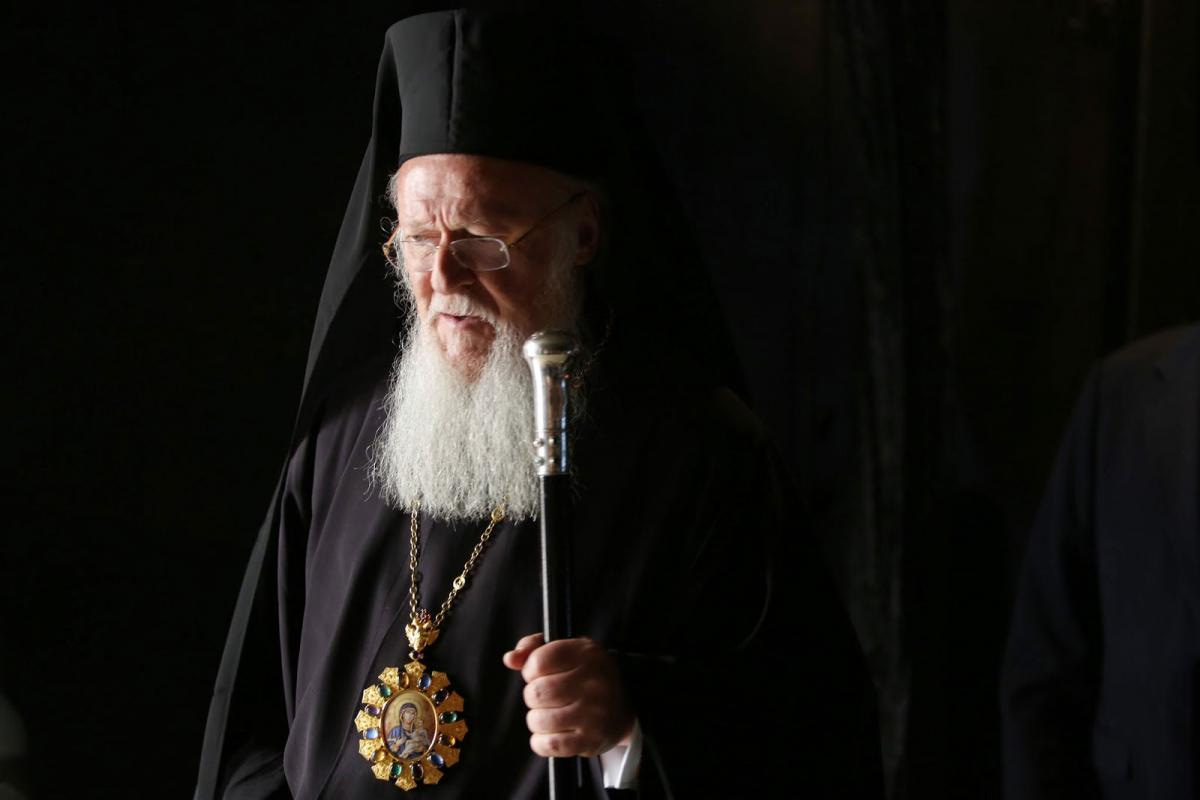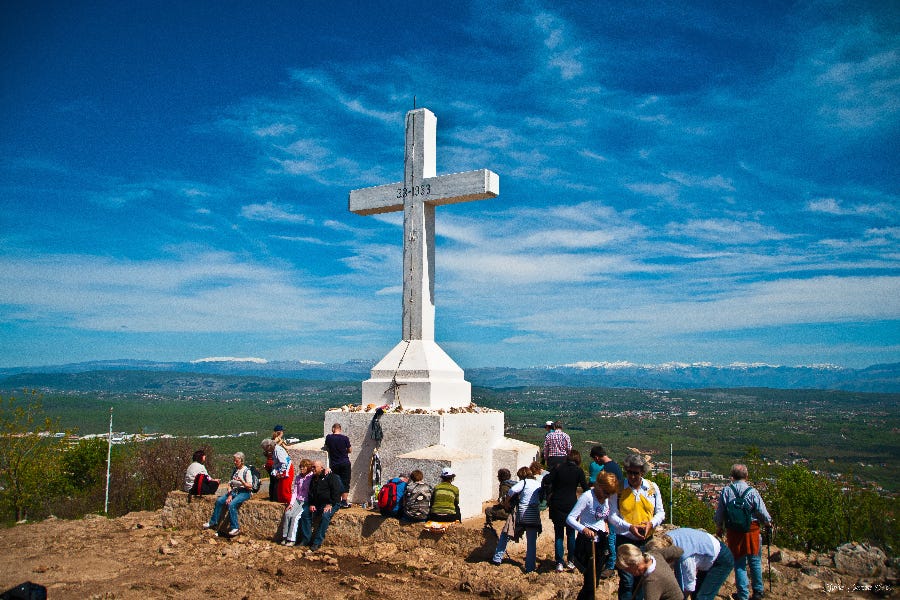Ecumenical Patriarch Bartholomew I of Constantinople is the primus inter pares of the patriarchs of the worldwide Orthodox communion, yet his leadership has been challenged by the Russian Orthodox Church and its allies in recent years.

The recognition of the Ukrainian Orthodox Church as autocephalous, independent of the Russian Church, and the Russian invasion of Ukraine, of which Patriarch Bartholomew is an outspoken critic, have divided the Orthodox Churches even further.
In an interview with The Pillar, Patriarch Bartholomew spoke about these ecclesiastical divisions and the war, as well as his friendship with Pope Francis and plans to find a common date for Easter.
This interview has been edited for length and clarity.
For years there has been discussion about fixing a date for Catholics and Orthodox to celebrate Easter together.
Many people seem to believe we have never been so close to managing that. Do you share that optimism?
The day of a common celebration of Easter has been a question discussed since the first centuries of Christianity. The First Ecumenical Council held in Nicaea, in 325 AD, set the criteria for the calculation of the date of Easter.
As you well know, next year marks the 1700th anniversary of this First Ecumenical Council of the undivided Church of the first millennium. Next year, also, out of a blessed coincidence, all Christians will celebrate Easter on the same day, April 20, as occasionally happens.
The desire to find a common day of celebration remains in our hearts and minds. We have expressed the desire to find such a common date and have already discussed this with our beloved brother in Christ, His Holiness Pope Francis. We fully understand the serious and complicated character of this decision to be reached.
It is certain that this question will be among others at the discussions of the newly established Joint Planning Commission between the Churches of Rome and Constantinople, which has already assumed its duties in order to prepare the celebrations of the 1700th anniversary of the Nicaean Council.
We accompany the process with prayer and hope for a final common agreement and a positive step forward.
However, we would like to underline that such an agreement in no way should create more tension among our Churches and especially among the various local Orthodox Churches. On the contrary, it should serve as a decisive step to our shared path for unity.
For such an agreement to go ahead, how would it work with the Orthodox communion? Would it be necessary to secure the agreement of each autocephalous Church?
Considering the divisions that currently exist among the Orthodox Churches, do you think this is a real possibility?
We are not able at this stage to say more on this matter. However, we remain hopeful that through open dialogue, prayer, and the guidance of the Holy Spirit, a resolution can be found that promotes unity and understanding among all Orthodox Churches.
You have been very outspoken in your criticism of the position of Patriarch Kirill and the Moscow Patriarchate regarding its support for the war in Ukraine.
However, I would ask what is your opinion of the Churches that are close to Moscow and that have kept silent, or openly supported it?
As the Ecumenical Patriarchate, from the very first day we have very clearly condemned the war in Ukraine and have declared that the Russian invasion into a sovereign country in no way can be called a “holy war,” but it actually is a "diabolic" one!
We believe that only through sincere dialogue and peaceful negotiations can we see a real solution in Ukraine. In order for dialogue to have a realistic perspective, the war must end immediately.
We are definitely in favor of the termination of the Russian invasion and attack — and of the success of all the efforts of His Excellency President Volodymyr Zelensky, especially in relation to the significant “Summit for Peace in Ukraine,” which took place in Switzerland on June 15-16, 2024, and which we personally attended, upon the gracious invitation of Her Excellency the President of the Swiss Confederation.
We have repeatedly stated that war is not a solution and should never be considered, even as a last resort. The act of humans killing each other, brother against brother, is the most abhorrent and unacceptable mark of the destructive and degenerate state that humanity, unfortunately, continues to be a hostage to. This reality is completely contrary to the teachings of our Lord.
We firmly believe that no rational person, no person of good will, can agree with what is happening today in Ukraine or in other parts of our world where bloody conflicts are taking place.
This war, like all wars and conflicts, and any action that undermines peace and disregards the dignity of the human person, being the icon of God himself – is a defeat for humanity.
While the immediate responsibility may lie with those who choose war over dialogue and bloodshed over diplomacy, we all bear the responsibility to strongly condemn such behaviors and choices. We must uphold peace, freedom, the respect of human rights, independence, territorial integrity, and the national sovereignty of every country.
Pope Francis has often spoken about the war in Ukraine, and refers to the suffering of the Ukrainian people.
Yet many people have criticized him, suggesting that he does not say or do enough to criticize Russia in this war. How do you see the pope's words and actions regarding the war?
Both His Holiness Pope Francis and ourselves are on the same line regarding the condemnation of the war in Ukraine. The pope was also very critical in his address to Patriarch Kirill of Moscow, having the rare boldness to even call him “an altar-boy of President Putin!”
We must also commend him for his personal involvement in the repatriation of the abducted children from Ukraine to Russia, as well as for the participation of the Vatican in the “Summit for Peace.”
You are famously very close to Pope Francis, as you were in the past with Popes John Paul II and Benedict XVI.
What were the main characteristics of each one of them that you would highlight?
Each pope has been a dear friend and partner in promoting Christian unity. John Paul II had an extraordinary charisma and deep spirituality. Benedict XVI possessed a brilliant theological mind. Francis embodies Christ-like humility, simplicity and care for the poor and marginalized.
All three have been fully committed to healing the divisions between our Churches and working together to address the immense contemporary challenges facing humanity.
In 30 years, it will be 1000 years since the schism between East and West.
Do you believe that it might be possible to heal that schism before we reach that date?
Certainly, we intensely pray for the healing of the 1054 schism between Rome and Constantinople. The opening of the dialogue of love between our two sister Churches back to the 1960s with the meetings of Pope Paul VI and Ecumenical Patriarch Athenagoras in 1964 in Jerusalem, including the mutual lifting of the anathemas between the two Churches, and all the efforts undertaken following this dialogue of love, paved the way for the official theological dialogue that started in the 1980s.
The Mixed Theological Commission between the Roman Church and the Orthodox Church has been working ever since with seriousness and dedication and with noteworthy concrete results.
We are hopeful that this dialogue will bear much fruit and will be a concrete step forward for the realization of the full unity of the two churches, when God permits, so that the desire of Christ himself, that we “may be one,” (Jn 17:11), may be fulfilled.




